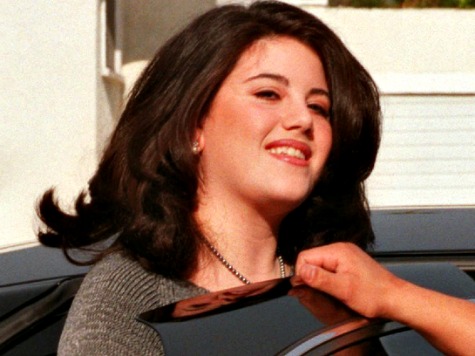Monica Lewinsky, the woman who rose to fame after her “inappropriate relationship” with then-President Bill Clinton was exposed to the public, said that the celebrity photo hacker has crossed the line.
“…certainly we can agree that stolen private nudes of actresses (or of anyone, really) is crossing the double yellow line,” she stated.
Lewinsky weighed in, via her new Vanity Fair blog, on the massive Hollywood scandal and expressed her empathy toward the celebrity women whose privacy was invaded.
“I feel outrage–as a fellow victim, as a civilized individual, and as a woman–when other women are so publicly and easily violated,” she wrote.
Hundreds of starlets had their risquè photos shared with the public after an anonymous hacker hijacked their iCloud accounts and plastered them on various porn sites.
The FBI became involved after the news broke but struggled to keep the file sharing to a minimum. Reddit reportedly made enough money to run their servers for one month from distributing the stolen images.
Lewinsky reflected on a moment in time when she panicked after a friend warned her that “seductive photos” of the former White House intern were floating around the internet.
She then had a moment of clarity.
“I was both relieved and shocked to see that the pictures purporting to be me, were not me,” she confessed.
However, Lewinsky confirmed that she did not object to having a “no cellulite” physique. The real identity of the woman in the images was not confirmed, but she did bare a striking resemblance to Kim Kardashian, apparently.
“I was disturbed by the notion that people might think I’d posed in this way and given permission to have them released,” said the columnist.
Lewinsky touched base in 1998, when a 20-hour conversation with her friend Linda Tripp was broadcasted on C-SPAN. Although it’s not on the same level as the worldwide distribution of nude photographs, she was embarrassed that her “girl talk” about dieting and life went viral.
Following Bill Clinton’s impeachment, due to the highly controversial and publicized affair, Lewinsky became a spokeswoman for the struggling diet brand Jenny Craig and designed a line of handbags under her name.
Sadly, Jenny Craig cut the brand ambassador loose after only three months of work, and she only received a portion of the $1 million she was promised. Lewinsky, who later re-gained the 31 pounds she had lost during the campaign, was reportedly criticized for not living up to the standards of a role model.
After the harsh reality resonated with Lewinsky that the spotlight was inescapable with pop culture celebrity, she packed her bags and fled the country to further her education. She graduated with a Master of Science from the London School of Economics in 2006.
Her thesis: In Search of the Impartial Juror: An Exploration of the Third-Person Effect and Pre-Trial Publicity.
Lewinsky has spent many years dodging backlash, following her alleged nine sexual encounters with President Clinton in the oval office many years ago, but has since kept the issue relevant by voicing her regrets and bitterness with the way it all ended. The social psychologist is now addressing other issues that cross the double yellow line.
What action can be taken against the exploitation of instances that align with the Chris Brown domestic violence police report being leaked or stolen sex tapes? Lewinsky declined to answer the question, but she did cite a source who had several solutions.
In the words of once-chief privacy and civil liberties officer for the Justice Department, Nancy Libin:
First, hackers should be prosecuted. But because the Internet is borderless and many of these criminals are in foreign countries, they can be very difficult to trace. We need to make sure we expand global cooperation by getting more nations to sign the cybercrime treaty and extradition treaties so these criminals can be brought to justice. More countries have to take a stand and recognize that this is something really pernicious.
Second, there are far better security precautions that many companies need to take. Many of them are not doing enough, and they leave their users vulnerable.
Third, people need to take personal responsibility for the security of their own data, using better passwords, for example.
Finally, the president’s Privacy Bill of Rights, which was introduced in 2012, has sort of languished. The White House has promised to revive it and submit it to Congress for a vote.

COMMENTS
Please let us know if you're having issues with commenting.